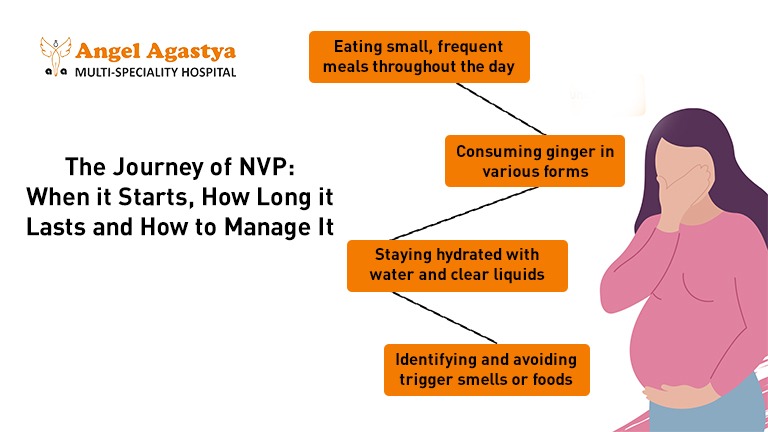Introduction:

Congratulations! You’re pregnant! A whirlwind of emotions likely swirls within you – excitement, anticipation, maybe even a touch of nervousness. Along with the joy comes a barrage of questions, and perhaps you’ve encountered a few well-meaning but outdated myths about pregnancy. One common tale claims the severity of your morning sickness hints at your baby’s sex. Is there any scientific basis for this, or is it just another reason to feel queasy?
Myth Debunked:

morning sickness has absolutely no bearing on your baby’s sex! Many women experience this common pregnancy symptom, regardless of whether they’re carrying a little boy or a little girl. So, you can ditch the guesswork and focus on navigating this phase of your pregnancy journey with confidence.
Science Behind the Discomfort:
Morning sickness, also known as nausea and vomiting of pregnancy (NVP), is a very real and often unpleasant experience for many expecting mothers. The exact cause remains a bit of a scientific mystery, but it’s likely a combination of factors. Hormonal fluctuations, particularly a surge in human chorionic gonadotropin (HCG), play a significant role. This “pregnancy hormone” is produced by the developing placenta and supports the early stages of fetal growth. Additionally, heightened sensitivity to certain smells and tastes can exacerbate nausea. While the severity of symptoms can vary greatly from woman to woman, the experience itself isn’t a predictor of your baby’s gender.
Understanding NVP:
While the exact cause of morning sickness remains a scientific puzzle, hormonal fluctuations, particularly a surge in hCG (human chorionic gonadotropin), likely play a key role. This “pregnancy hormone” supports early fetal development, and its increase can contribute to nausea. Additionally, heightened sensitivity to certain smells and tastes can exacerbate the discomfort.

The Journey of NVP: When it Starts, How Long it Lasts, and How to Manage It
Morning sickness typically kicks in around 4-6 weeks of pregnancy, often reaching its peak intensity between weeks 8 and 12. For some women, the nausea and vomiting can persist throughout the first trimester, while others may experience it occasionally or
not at all.

There’s no magic bullet for preventing NVP, but some find relief through lifestyle adjustments, including:
- Eating small, frequent meals throughout the day: This helps keep your stomach from getting empty, which can trigger nausea. Opt for bland, easily digestible foods like crackers, toast, or applesauce.
- Consuming ginger in various forms: Ginger has natural anti-nausea properties. Try ginger tea, sucking on ginger candies, or incorporating grated ginger into your cooking.
- Staying hydrated with water and clear liquids: Dehydration can worsen nausea. Aim to sip on water or clear broths throughout the day.
- Identifying and avoiding trigger smells or foods: Strong smells or certain foods can trigger nausea for some women. Pay attention to what seems to worsen your symptoms and try to avoid those triggers.
Doctor Communication is Key:

While morning sickness is a common pregnancy experience, communication with your doctor is crucial. If your symptoms are significantly impacting your daily life, causing dehydration, or are accompanied by other concerning symptoms like persistent fever or severe abdominal pain, be sure to speak to your healthcare provider. They can explore underlying causes, offer personalized guidance on managing your nausea, and recommend medications if necessary.
Embrace the Journey:

Remember, morning sickness is a temporary, albeit unpleasant, part of pregnancy for many women. Focus on healthy eating habits that are gentle on your stomach, listen to your body’s needs, and don’t hesitate to seek support from your doctor or pregnancy support groups. While you might be filled with excitement to discover your baby’s sex, cherish this time of transformation and prepare for the incredible adventure of motherhood!
A Deeper Dive into Morning Sickness
For some women, morning sickness can be a significant hurdle during early pregnancy. If you’re struggling with persistent nausea and vomiting, here are some additional resources that might be helpful:
- The American College of Obstetricians and Gynecologists (ACOG): https://www.acog.org/ offers a wealth of information on pregnancy, including a section dedicated to morning sickness.
- The National Institute of Child Health and Human Development (NICHD): https://www.nichd.nih.gov/ provides evidence-based information on various pregnancy-related topics, including morning sickness.
- The National Pregnancy Helpline: 1-800-672-2233 offers free and confidential support 24/7 for women facing challenges during pregnancy.
Remember, You’re Not Alone:
While morning sickness can be a challenging part of pregnancy, it’s important to remember you’re not alone in this! Many women experience this discomfort. Focus on healthy eating habits, listen to your body’s needs, and don’t hesitate to seek support from your doctor or pregnancy support groups. While you might wait with bated breath to discover your baby’s sex, cherish this time of transformation and prepare for the incredible journey of motherhood!
FAQs on Morning Sickness:
- What causes morning sickness?
The exact cause is unknown, but it likely involves hormonal fluctuations, particularly hCG (human chorionic gonadotropin) and heightened sensitivity to smells and tastes. - When does morning sickness typically start and peak?
It usually begins around 4-6 weeks and peaks between weeks 8-12. - How long does morning sickness typically last?
For some, it persists throughout the first trimester, while others experience it occasionally or not at all. - Are there any ways to prevent morning sickness?
There’s no guaranteed prevention, but eating small, frequent meals, consuming ginger, staying hydrated, and avoiding trigger foods can help manage symptoms. - What medications can help with severe morning sickness?
If your doctor deems it necessary, they can recommend medications specifically for pregnancy-related nausea and vomiting. - What are some signs that morning sickness might be a cause for concern?
If it leads to severe dehydration, is accompanied by persistent high fever, or significantly impacts your daily life, consult your doctor. - Are there any tests to diagnose the cause of morning sickness?
While there’s no specific test, your doctor might recommend blood tests or ultrasounds to rule out other potential causes of nausea and vomiting. - Can morning sickness affect the baby?
Occasional morning sickness is generally not harmful to the baby. However, severe, persistent nausea can lead to dehydration, which could affect the baby. - Does morning sickness differ depending on a multiple pregnancy (twins, triplets)?
While there’s no definitive link, some women carrying multiples experience more intense morning sickness, likely due to higher hCG levels. - Are there any cultural beliefs associated with morning sickness?
Interestingly, morning sickness has been depicted in various cultures throughout history. Some viewed it as a sign of a healthy pregnancy, while others attributed it to emotional distress of the mother-to-be.

